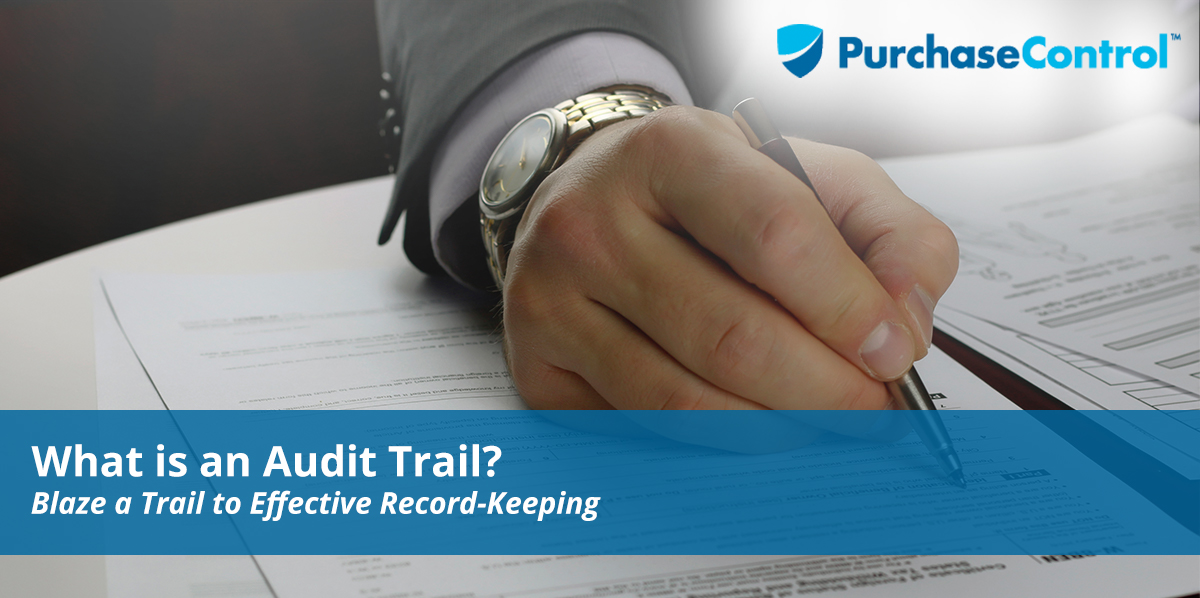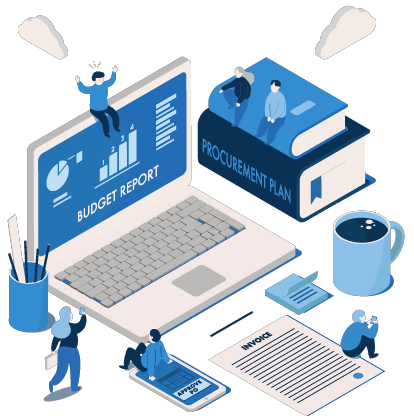Effective record-keeping is one of the cornerstones of a successful business. Without it, your company may find itself at risk of a number of potentially costly ills. One of the most important methods of record-keeping, the audit trail, is especially crucial for finance, human resources, and procurement teams of all sizes.
What is an audit trail? Put simply, it’s a chronological record the sequence of events connected to a given transaction, such as a purchase of raw materials, payroll disbursements, or a detailed financial statement. The record includes all the source documents connected to the transaction, providing context and clarity in the event a review is required. The more comprehensive the documentation, the more effective the audit trail is when used to create financial reports, verify information, and ensure compliance while eliminating fraud.
Audit Trails: When More is More
While less is definitely more when it comes to, say, hot peppers or strong cheese, more is actually more when you’re blazing an audit trail. Keeping an audit trail reinforces your internal controls and helps ensure total compliance with both your own processes and all legal and financial requirements.
“When the writing’s on the wall—or, more properly, in the accounting system—everything from audits to process improvement is much simpler. From small businesses to global conglomerates, companies of all sizes and cultures can benefit from a robust audit trail.”
Rigorous Audit Trails Benefit Your Business
When the writing’s on the wall—or, more properly, in the accounting system—everything from audits to process improvement is much simpler. From small businesses to global conglomerates, companies of all sizes and cultures can benefit from a robust audit trail. For finance and procurement in particular, keeping a clear audit trail can:
- Reduce Errors and Improve Accountability. Some financial transactions are very simple, while others can become a tangled sequence of events, trailing quotes, approvals, revisions, and delays. Mistakes can, and will, occur. Without a detailed record, it can be tough to pinpoint the error, let alone the responsible party or a valid correction. Audit trails connect every source document and electronic record to every person interacting with a transaction in any way, making it much easier to track and correct errors while simultaneously reducing their likelihood from the start.
- Ensure Compliance. Every company is different, but all companies want to stay on the right side of the law with regard to compliance. Falling outside the lines can cost you lucrative contracts and generate substantial and costly fines. With an audit trail in place, you can quickly provide whatever information is required by the IRS, industry review boards, and other government bodies to demonstrate your compliance with all relevant protocols and laws.
- Eliminate Fraud. The enhanced internal controls provided by a well-defined audit trail create an environment where fraud and other malfeasance won’t be able to find purchase (so to speak). When source documents, from purchase orders to invoices to bills of lading, are connected and cross-checked automatically, scams like invoice fraud are easily avoided. In addition, internal sources of fraud—both intentional (e.g., embezzlement, theft) and inadvertent (e.g. invisible spend with unapproved, unvetted suppliers)—are nipped in the bud when your staff knows the audit trail records every single step of the history of a transaction.
- Simplify Audits. Nobody goes looking for an audit, but in the event your business is called on the proverbial carpet, having a proper audit trail can take some of the pain out of the process. With clear, easy to verify financial records, auditors can spend less time and resources on your audit, reducing your expenses and freeing you to return to business as usual much more quickly.
- Reassure Investors and Lenders. Knowing you’ve got a lock on documentation gives potential investors and lenders confidence in your internal processes and business value during due diligence. As with auditors, clear and comprehensive audit trails make it easy to verify your activity, creditworthiness, and business acumen.
Note: The continuing evolution of the paperless office means you can maximize the efficacy of your audit trail by moving beyond paper records and into a centralized software solution to handle your finance and procurement audit trails. Not only will your users have structured access to all relevant information through shared document storage, but automation and cross-connected entries for the entire P2P process (including user information, transactional data, etc.) will make it much easier for auditors to review, sort, and verify your records.
Effective Audit Trail Essentials
Understanding the value provided by an audit trail is easy. Putting that understanding into practice might seem like a challenging prospect, but in truth, it too can be a simple process with the right approach and tools.
- Organize and Optimize. The smart place to start is by making data management (as part of a complete procurement and finance management initiative) priority one. Deploying tools such as procurement software that incorporates both artificial intelligence (AI) and automation will make it easy to get your hands around your datasphere. You need to be able to see all of your spend, and connect all the source documents for every transaction, to make your audit trail effective—and software solutions make that both possible and relatively painless.
- Engage Your Team, Management, and Supply Chain. When everyone’s on the same page, and using the same tools, audit chains aren’t just easier—they’re automatic. Train your staff on your software, systems, and processes, and bring both management and your vendors into the fold through controlled, hierarchical access so everyone can see, access, and analyze the information relevant to their roles, and communicate with everyone else.
- Regularly Conduct Your Own Internal Audits. While audit trails are a lifesaver during external reviews and audits, they can also provide a rich trove of information for internal process review and continuous improvement initiatives. You’ll keep rogue spend, fraud, and errors to a bare minimum, and provide your team with some excellent practice if and when another party needs to audit your transactions.
A Clear Audit Trail Leads to Peace of Mind
Knowledge is power, and having a complete and easily accessible portal to all your transactional data gives your company the power to pursue its goals while enabling strong compliance and reduced risk exposure. Make an effective audit trail part of your financial and procurement strategy, and you’ll be well equipped not just to record essential information, but put it to use in building value, profitability, and productivity.
Learn how to keep your approval process steaming ahead with workflows, thresholds, and controls
Find Out How








